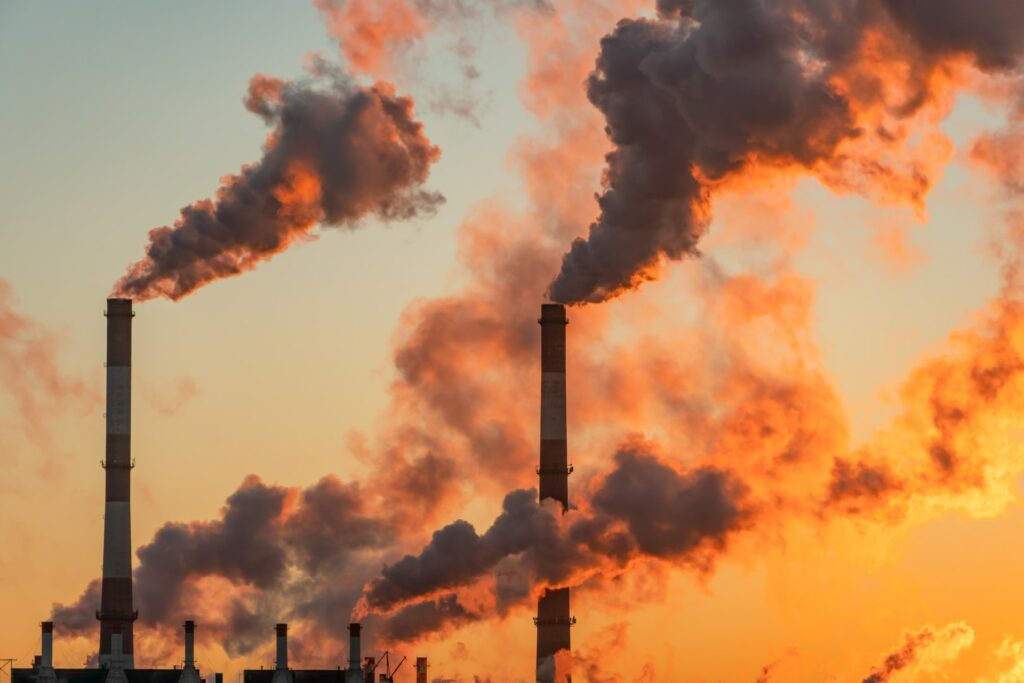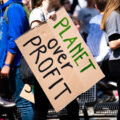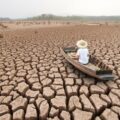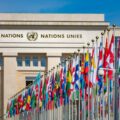Climate change: Turning point or point of no return?
Climate change: Turning point or point of no return?
Predicting the future? A more than daring venture! Hopefully it will turn out positively in the context of climate change.
One of the most discussed topics
The EARS Dashboard is like a seismograph that is particularly sensitive to developments in the interplay between religion and society. When selecting the topic ‘climate change’ on the dashboard, 102 article summaries from the last 12 months are found. Such summaries cover a wide range of events, such as the impact of the flood disaster in Germany and Belgium in 2021[1] or the climate summit which took place in the same year.[2] Thus, the impact of climate change is a key subject and has a large presence on the dashboard. This is not surprising, because the issue of climate change is of great significance for the future of mankind.
The relation to religion: an example
From a Christian point of view, God creates man as a representative role of God on earth. Genesis 1:26 represents a key moment for the ethical dimension of man’s dealing with animals, plants, and the entire environment. Against this background, Pope Francis, the Ecumenical Patriarch of Constantinople, Bartholomew I, and the Archbishop of Canterbury, Justin Welby, signed a common message for the environmental protection of the planet.[3]
But do humans manage to live up to this claim? For religious motives or not, is man capable of living in a more sustainable and environmentally friendly way?
Three possible scenarios
At this point, three possible scenarios are imaginable.
The first scenario is a very gloomy one in which man does not succeed. The effects of the climate crisis increase, animals and plants are gradually wiped out and pandemics spread. Worse than that, a nuclear strike in the course of warlike conflicts makes at least parts of the earth uninhabitable.[4]
This dark vision of the future is supported, for example, by the fact that the link between ecology and religious beliefs tends to receive attention only from minorities in some religious communities, even if these minorities are especially committed to sustainable living when they do so.[5]
The scenario of a particularly bleak vision of the future of an earth contaminated by radioactivity finds its origin in Putin’s threats of a nuclear strike against the background of Russia’s war of aggression against Ukraine.[6]
The second scenario is that man partially succeeds. The climate crisis still exists, even if humans live in a more environmentally friendly way overall. Technologies have been developed that contribute to the protection of nature. Initiatives from individuals and organisations, including religious ones, aim to protect nature. This is illustrated on the dashboard by, for example, the aim to make churches greener.[7] [8] The general goal of many religious institutions in this scenario is to protect God’s creation – so to speak.[9]
But there is also a great injustice. Poorer countries cannot use the mentioned technologies and thus have to suffer more from the consequences of the climate catastrophe, which is at least partly unstoppable.[10]
In the final scenario, man succeeds. Humankind pulls the emergency brake and initiates a reset. Everyone pulls together to protect the environment. In this scenario, the various religions play an important role: in dialogue and collective action, they enable a spiritual or common ethical basis that is very supportive in counteracting the climate crisis.[11] [12] [13] [14] This huge role of religions in counteracting climate crises is actually emphasised by the UN.[15]
What is the most likely scenario?
The most likely scenario seems to be scenario 2. Many scientists emphasise that climate change can hardly be stopped and that its effects can no longer be completely reversed.[16] Nevertheless, it would still be possible to make some improvements. Examples are the renaturation of former lignite mining areas[17] or the reforestation of destroyed forest areas with tree species adapted to climate change.[18] Scenario 3 would be very desirable, but represents a utopia. After all, climate change has already far advanced and is currently influencing the lives of animals and humans.
What can we learn?
But what can we learn from these scenarios? What are the consequences of this time experiment? What is certain is that we are at a turning point. The awareness of this fact could now trigger several reactions. On the one hand, people may feel powerless due to the impression that nothing can be changed anyway and that ‘everything is too late’. But perhaps all this could also be understood as a signal to act comprehensively right now and to make drastic changes in life that will enable even the industrialised nations to live in harmony with nature, or at least prevent its further destruction.[19]
Turning point!
From a religious perspective, man would then be aware of his responsibility for creation, for fellow human beings and fellow creatures. The practical implementation of this responsibility requires common, quick, and global action.
Want to learn more about similar topics? Go to the EARS Dashboard.
Sources
[1] Prière œcuménique et internationale pour les victimes des inondations
[2] Inédito: o Papa, o patriarca e o arcebispo juntam-se pela proteção da criação
[3] Inédito: o Papa, o patriarca e o arcebispo juntam-se pela proteção da criação
[4] Das wären die Folgen eines nuklearen Krieges
[5] Verbindung von Religion und Klimaschutz wenig im Bewusstsein
[6] So könnte Putin einen Atomkrieg anzetteln
[7] ‘Make churches greener’ – Bishop of Norwich’s eco plea
[8] L’écologie au menu de l’assemblée plénière des évêques de France
[9] Assemblée des protestants sur le climat: « nous sommes des alliés du Dieu de la vie »
[10] Globale Erwärmung: Diese Länder sind am meisten vom Klimawandel bedroht
[11] Religie speelt ‘enorme’ rol bij keren van klimaatverandering, zegt VN
[12] Kerken alomtegenwoordig op Klimaattop Glasgow
[13] Encuentro interreligioso tras la COP 26: el compromiso de las religiones con el cambio climático
[14] Climat : 50 chefs religieux réclament des mesures à la Cop 26
[15] Religie speelt ‘enorme’ rol bij keren van klimaatverandering, zegt VN
[16] Bericht zur Erderwärmung: Klimawandel nicht mehr aufzuhalten?
[17] Kunstlandschaften statt Natur
[18] Zunehmende Waldbrandgefahr gefährdet Erfolg von Aufforstungen






